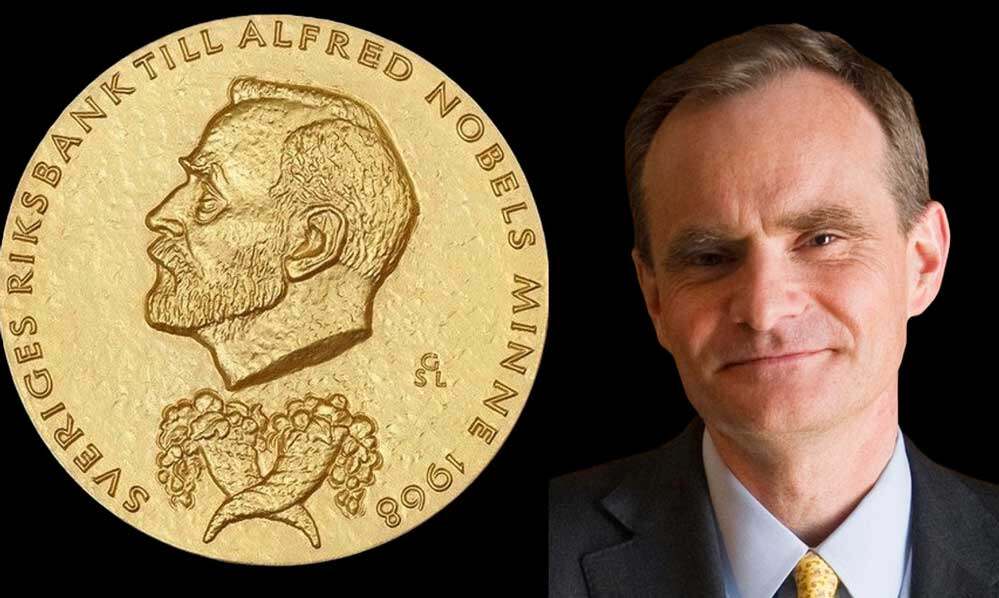An economist who studied at The University of Manchester has been awarded the prestigious 2024 Nobel Prize in Economics for his groundbreaking research into understanding wealth disparities between different nations.


Simon Johnson – who studied Economics at Manchester in the 1980s, and is now a professor at the Massachusetts Institute of Technology (MIT) – won the prize alongside Daron Acemoglu and James Robinson in recognition of their work to analyse how institutions and the rule of law shape national prosperity.
Professor Johnson was born in Sheffield, and completed his undergraduate studies at Oxford University, before doing a master’s degree at Manchester and a doctorate at MIT.
His career has included prominent roles at the Washington-based Peterson Institute and the International Monetary Fund (IMF), where he served as chief economist from 2007 to 2008 during the global financial crisis. He eventually returned to MIT as a professor, focusing on global economic inequality and policy.
Through their research, Professor Johnson and his colleagues have shaped global debates by demonstrating that democracies, which hold to the rule of law and provide individual rights, have spurred greater economic activity over the last 500 years. Their insights – derived from studying colonialism’s enduring effects on global development – have broad implications for economic strategies today.
Professor Johnson’s academic achievements have established him as a leading voice on global economic policy, which has now been further cemented by this honour. He becomes the 26th Nobel laureate associated with The University of Manchester, either as staff or alumni.
“It is a surprise and a delight to win the Nobel Prize in Economics,” said Professor Johnson. “Getting my master’s degree at Manchester helped launch my professional career – and I will always be grateful to my teachers and fellow students in those years. Their guidance and inspiration (and many late-night conversations) helped push me down the road towards careful empirical work, bringing history to bear, and understanding the importance of building institutions that support inclusive prosperity.”
“This year’s laureates have pioneered new approaches, both empirical and theoretical, that have significantly advanced our understanding of global inequality,” said Nobel committee member Jakob Svensson. “Reducing the huge differences in income between countries is one of our times’ greatest challenges, and their insights show that democracies are – on average – better for promoting growth in the long run.”
“We’re delighted to hear the news that one of our illustrious alumni has received a Nobel Prize. Manchester is a fertile ground for launching careers and developing ideas into groundbreaking research, and the faculty continues to be a font of ideas that forms globally relevant research. All of us in Manchester are sending our congratulations to Simon.”
–Professor Fiona Devine CBE, Vice President and Dean of the Faculty of Humanities






































